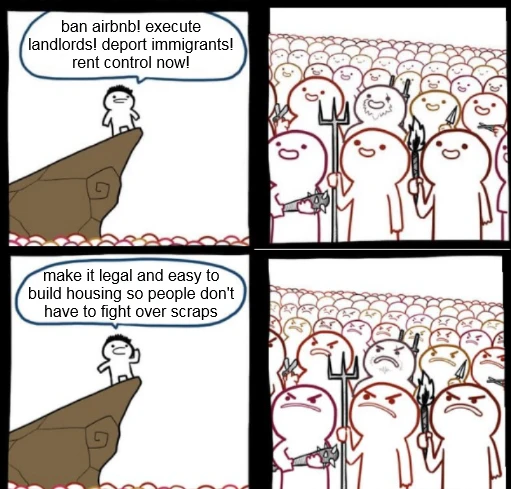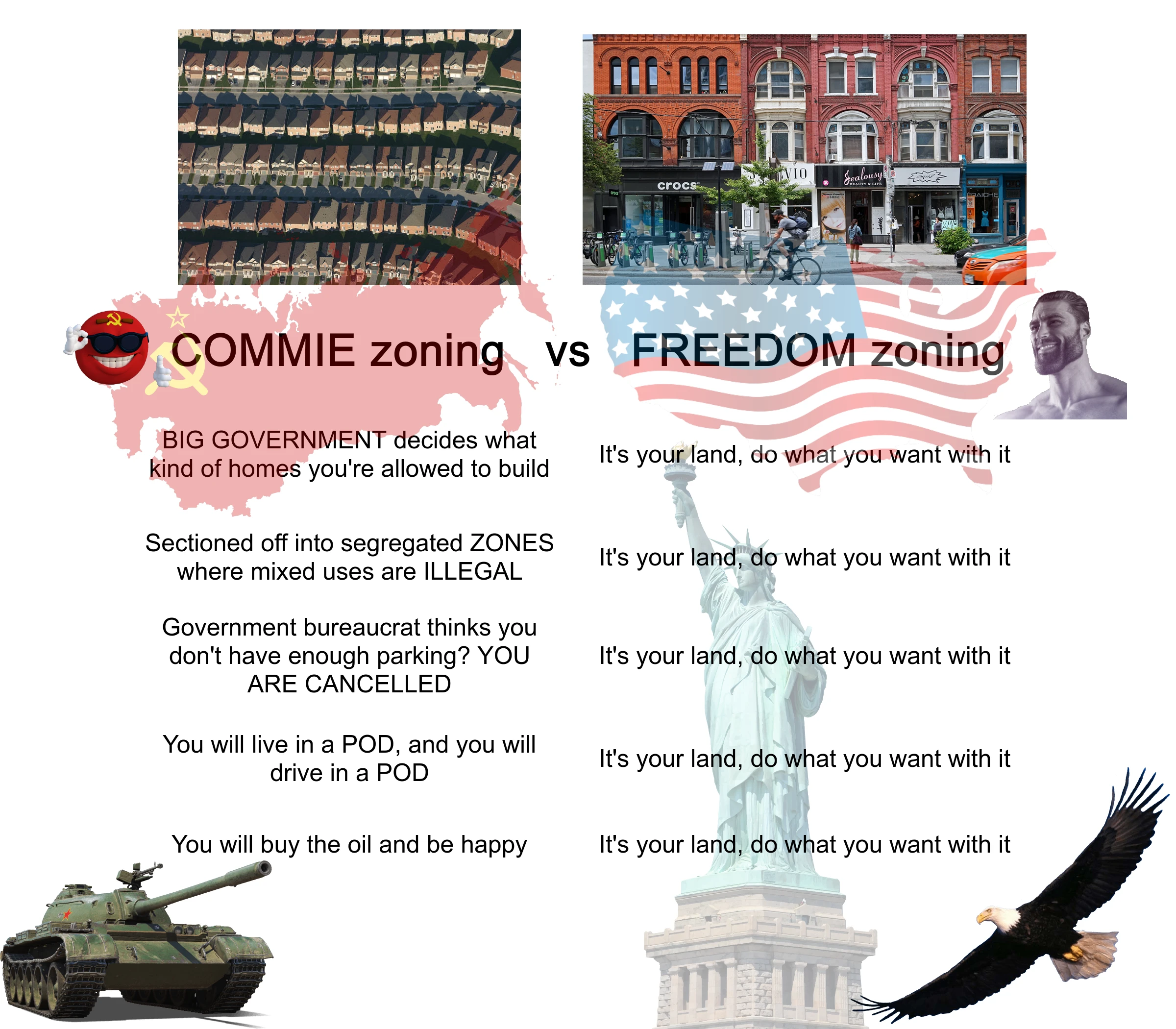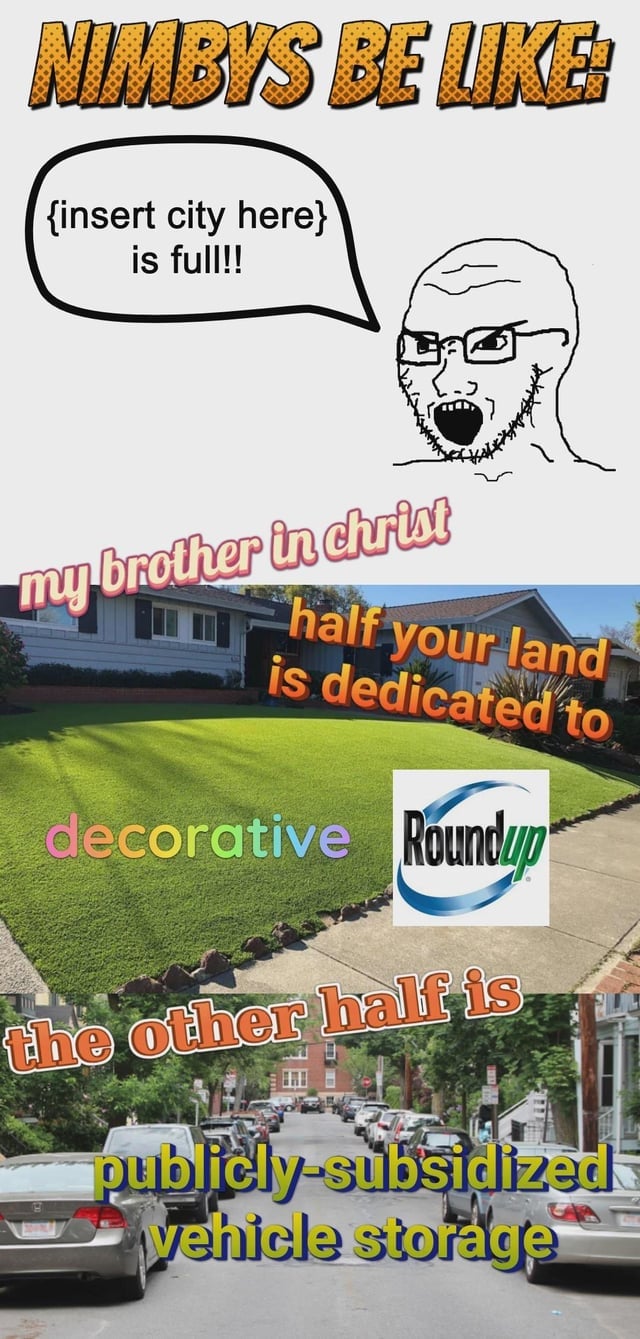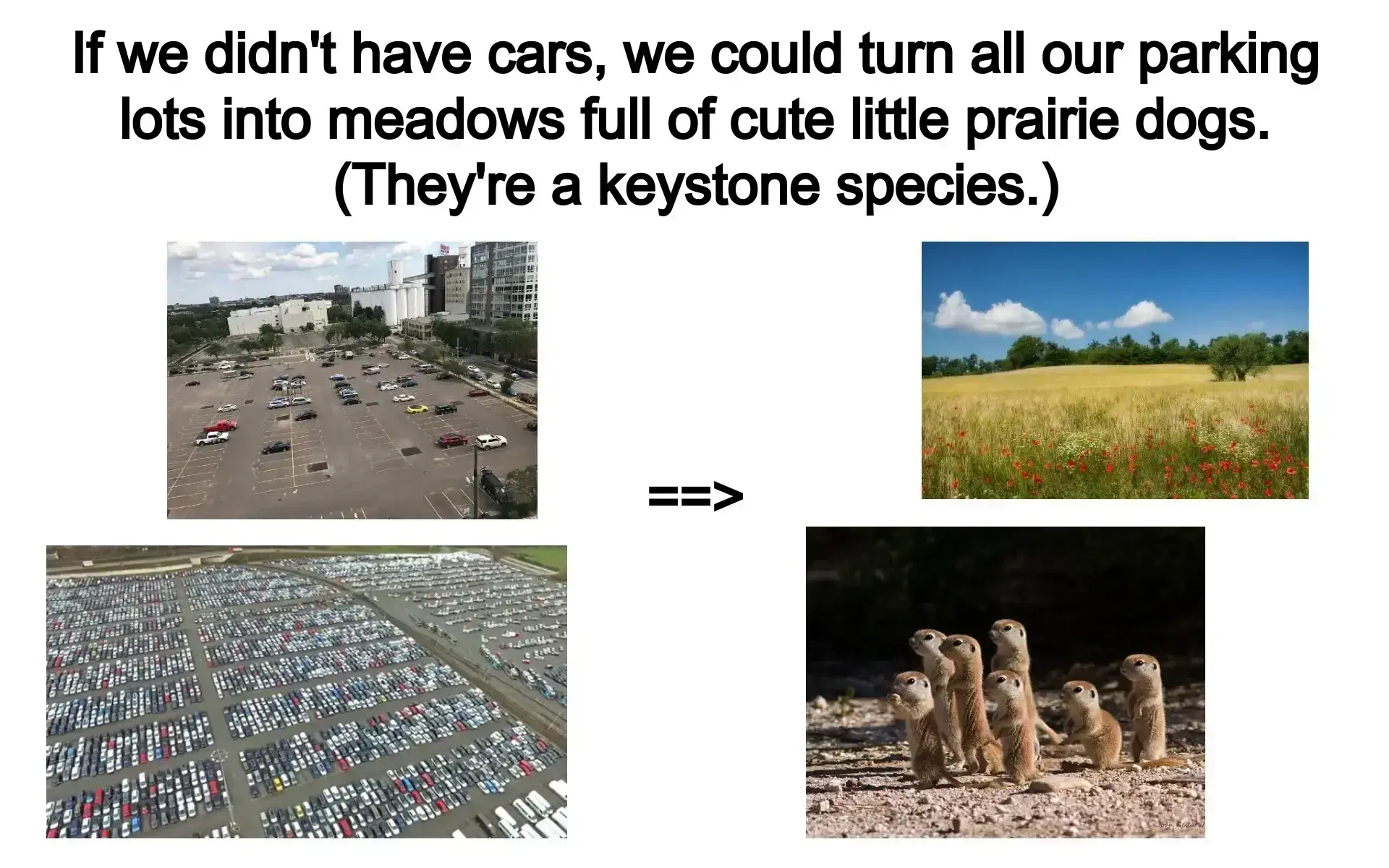Plus, it's just a weird argument to be making that we should be just forcefully shipping homeless people out to Bumretch, Kentucky to live in a dilapidated shed. No jobs, no opportunities.
The places where housing is needed are cities. The places with jobs and opportunities. And the cities that are most expensive are the ones with the absolute lowest vacancy rates.
Additionally, why would we actually want zero vacancies? Vacancies are good for the average person. Vacancies mean you can shop for a new home or apartment without finding someone to swap units with you. Vacancies mean your landlord has a credible threat of vacancy if they demand too much in rent. Vacancies give power to renters and buyers. Why would any left-leaning person willingly -- much less gleefully -- take bargaining power away from renters and give it to landlords on a silver platter?
At this point, I'm half-convinced this "vacancy truth" rhetoric the person you're responding to is espousing is a psyop by landlords to protect their economic interests.












I've never met a person actually making that argument, though. I'm certainly not advocating removing building safety codes, only the NIMBY bullshit like exclusionary zoning that was literally designed to keep people of color far away from white people. Even the opening paragraphs of Wikipedia page for the YIMBY movement say it's primarily in favor of removing things like exclusionary zoning and parking minimums:
https://en.m.wikipedia.org/wiki/YIMBY